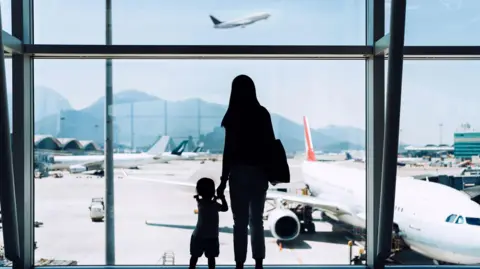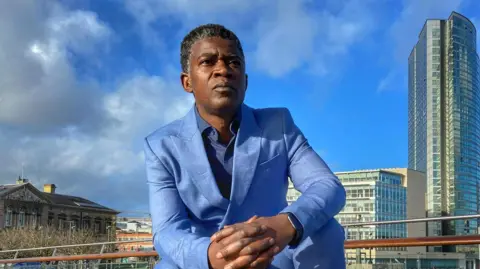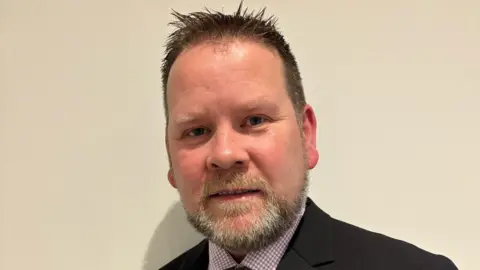Northern Ireland is 'least diverse' part of the UK
 Getty Images
Getty ImagesNorthern Ireland is the "least diverse" part of the UK, according to research published by the Northern Ireland Assembly.
The new report on international migration said that based on international migration only 3.4% of Northern Ireland's population (65,600 people) are from a minority ethnic group.
That compares to 18.3% in England and Wales and 12.9% in Scotland.
"While Northern Ireland has become a more diverse culture over the past two decades, it still remains the least diverse region of the UK," the research said.
The paper has been compiled by the assembly's Research and Information Service and looks at migration in and out of Northern Ireland.
Around 293,000 long-term international migrants are estimated to have arrived in Northern Ireland between 2001 and 2023.
But 231,000 people have left, "leaving a net total international migration flow of 62,000 people," according to the paper.
Most migrants who have come to Northern Ireland are young, with almost nine out of ten under 35 years old.
Just over half have been male.
The number of migrants is much higher in some parts of Northern Ireland than others.
Armagh City, Banbridge and Craigavon, and Newry, Mourne and Down council areas have had the largest number of international migrants since 2001.
But Derry City and Strabane, Causeway Coast and Glens, and Antrim and Newtownabbey council areas have experienced a net loss of migrants since 2001.
The assembly paper also said that "the growing diversity of the population is not supported by everyone in the community".
It points out that racist incidents reached their highest level in Northern Ireland in 2023/24 with 1,353 recorded.
"A racist incident is defined as any incident, which may or may not constitute a criminal offence, which is perceived to be racist by the victim or any other person," it said.
"Hate crime is more prevalent in Northern Ireland than generally realised, with the number of racist incidents and crimes regularly exceeding the number of sectarian crimes.
"The task for the future will be to provide a more welcoming environment for our new residents and ensure that their skills and talents are fully utilised to enrich the cultural and economic life of all the people of Northern Ireland."
 Taura Arutura
Taura AruturaTura Arutura from Africa House NI said he thought there was "systematic under-representation" of people in ethnic minorities in positions of authority in Northern Ireland.
He added that he was frustrated with Stormont's Racial Equality Strategy.
"Key actions were never implemented, no resources were allocated, and no one was held accountable for this," he said.
"The racist attacks in the summer show the failure in addressing issues affecting the the migrant population."
Diverse schools
Schools are places where the changes to Northern Ireland's population are most noticeable.
In 2023/24, one in every 16 pupils at school here was a "newcomer", according to the Department of Education.
The term is used to refer to a pupil who does not initially speak the same language as their class teacher, and is often originally from outside the UK.
In 70 primary schools, at least one in every five pupils is a newcomer.
Ten primary schools in Portadown, Dungannon, Belfast, Ballymena, and Armagh are named, in which well over half of the pupils are newcomers.
One is Dungannon Primary School, in which 234 of its 320 pupils in October 2023 were newcomers.
 David Thompson
David ThompsonDavid Thompson, the principal of Dungannon Primary School, said he saw the determination from the newcomer pupils coming through the school.
He told BBC News NI that 73% of newcomers to his school are made up of 16 different nationalities.
"The population has increased by a third in the past 11 years since I joined the school and it has had such a positive impact."
During the decade from 2010 to 2020 Poland was the top country of origin for international migrants to Northern Ireland.
"Since Brexit, however, inward migration from Europe has fallen sharply, and the latest figures (2023) show that India, Ireland and Nigeria are now the top three countries of origin," the paper said.
While migration change can be difficult to measure, the assembly's research used estimates based on Medical Card registrations and de-registrations.
It said that the Northern Ireland Statistics and Research Agency (NISRA) was "content that their methods yield robust and accurate estimates".
Census data, school enrolments and birth statistics were also used by the researchers.
